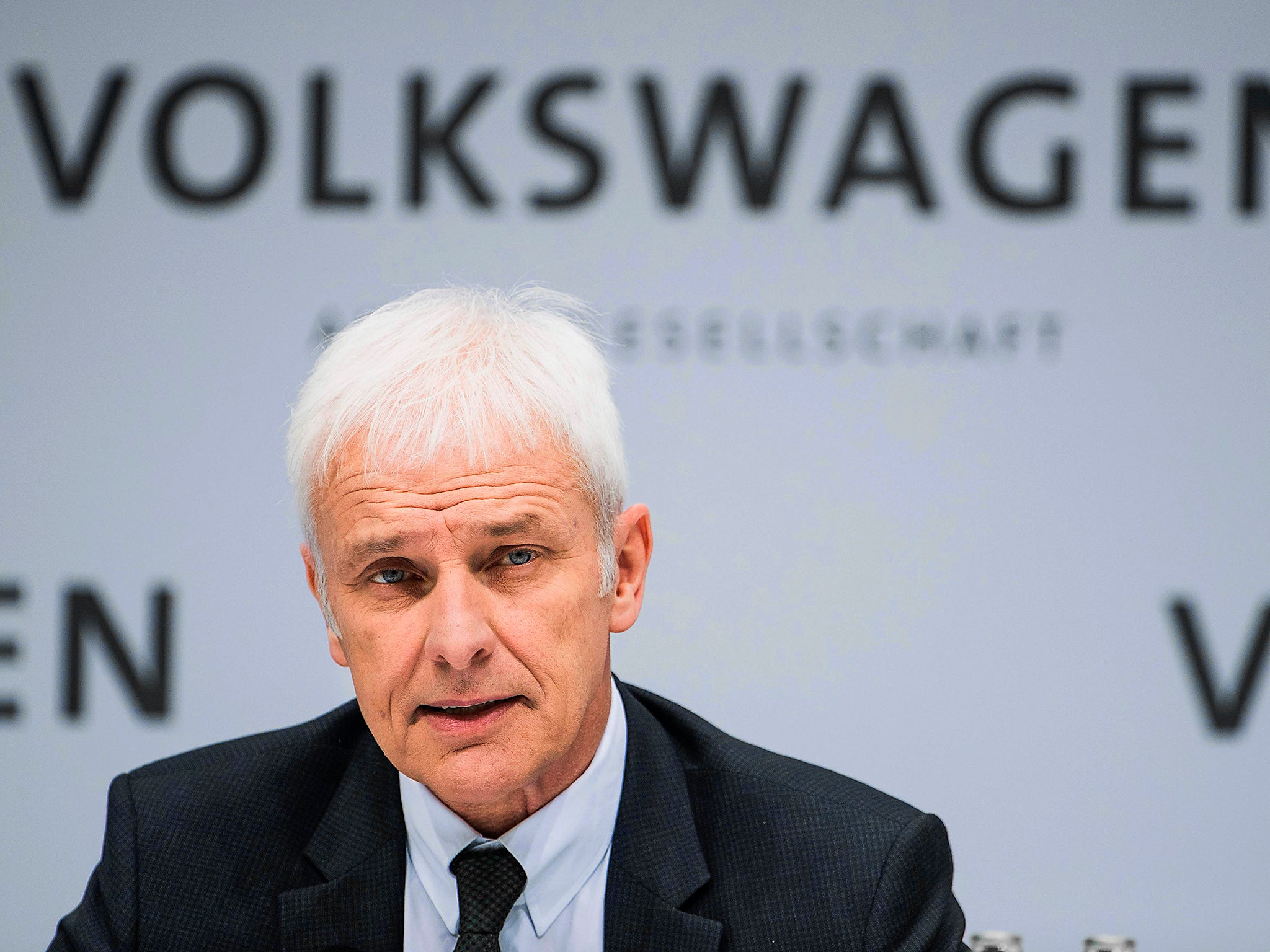Volkswagen CEO pay soars 40% to €10m as profits rise despite emissions cheating fallout
Matthias Mueller apologised in January for 'repulsive' experiments in which monkeys and humans breathed in exhaust fumes from VW Beetle

Volkswagen chief executive Matthias Mueller’s pay jumped 40 per cent last year to more than €10m (£8.9m) as the carmaker’s profits soared despite continued fallout from the emissions cheating scandal.
The German company revealed on Tuesday that it paid its nine-strong board €50.3m in 2017 - 27 per cent more than the year before.
Mr Mueller took over from Martin Winkelhorn as VW chief executive a week after the dieselgate scandal broke. Mr Mueller had previously headed up the group’s Porsche division since 2010. He will receive a total of €10.3m for 2017, including share options and “fringe benefits”.
The company has attracted fierce criticism in the past from activist investors who have said that VW’s bosses should be punished for leading the firm while it cheated on diesel emissions tests.
VW changed its executive pay policy after outrage over the €63.2m it awarded its top staff in 2016, even as the group recorded its worst ever annual net loss of €1.6bn. Under the old scheme, Mr Mueller would have been awarded €13.15m last year, Volkswagen said.
Herbert Diess, head of VW’s passenger car operations, received €5.2m last year, the group’s annual report released on Tuesday shows. Mr Deiss took up his role on VW’s board of executives in July 2015, having previously been head of development at BMW.
It emerged in January that Volkswagen and BMW, along with fellow German car giant Daimler, paid for tests in 2014 during which humans and monkeys breathed in toxic diesel fumes.
The experiments saw 10 monkeys locked into airtight containers and made to breathe the exhaust from a VW Beetle, according to the New York Times. Twenty-five healthy human beings also breathed the fumes.
The tests were aimed at disproving allegations that diesel emissions, which have been linked to asthma, lung diseases and heart attacks, were harmful to health.
Mr Mueller labelled the tests, which took place before he became chief executive, as "unethical and repulsive".
The dieselgate scandal has cost VW tens of billions of dollars in fines, compensation and other settlement costs, mostly in the US.
The company has refused to offer its European customers any financial compensation, arguing that cars with defeat devices can be fixed with a software tweak that doesn’t affect their market value.
VW rigged 11 million diesel cars to turn off pollution controls except when the cars were being tested. Around 8.5 million of those cars were sold in Europe.
Despite the huge reputational damage inflicted on the company’s brand, VW overtook Toyota last year to become the largest vehicle manufacturer in the world with revenues of €230.7bn in 2017. Across its 12 brands, which include Seat, Audi and Bentley, it sold 10.74 million cars and more than doubled its net profit to €11.4bn.
Subscribe to Independent Premium to bookmark this article
Want to bookmark your favourite articles and stories to read or reference later? Start your Independent Premium subscription today.

Join our commenting forum
Join thought-provoking conversations, follow other Independent readers and see their replies